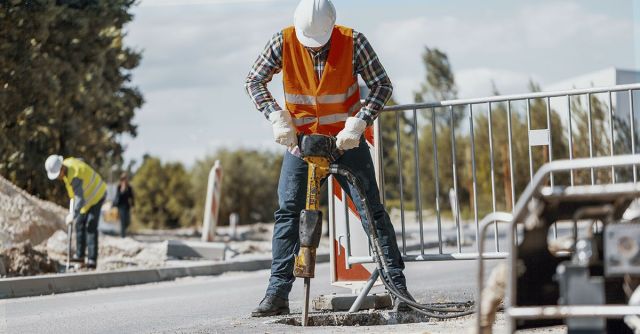Coronavirus & Construction: Is Construction 'Essential?'

It's a difficult time to be in the labor force right now. COVID-19 continues to rip economies apart as confirmed cases in the US approach 200,000 — a number that continues to rise unabated. With national, state, and local governments doing everything they can to slow the spread, many have resorted to passing "stay-at-home" mandates and orders for all businesses to cease operation unless it is considered an "essential industry."
But what does "essential" mean, exactly? And what does it mean for construction?
Current state mandates for construction
The Cybersecurity and Infrastructure Security Agency (CISA), the organization responsible for drafting the 'Memorandum on Identification of Essential Critical Infrastructure Workers During COVID-19 Response,' advises that only those workers who conduct services essential to critical infrastructure viability (medical and healthcare, telecommunications, information technology systems, defense, food and agriculture, transportation and logistics, energy, water and wastewater, law enforcement, and public works) should continue operating. Those services include, but are not limited to, "staffing operations centers, maintaining and repairing critical infrastructure, operating call centers, working construction, and performing operational functions."
The vagueness leaves much to be desired, though there is some specificity later in the document. For instance, construction workers and contractors are deemed essential for public works and infrastructure support, commercial facilities, critical manufacturing, and residential/shelter facilities and services.
Many states have also chimed in on the subject and have explicitly mentioned construction businesses in their statements. Illinois and California, for instance, have both declared that construction projects are essential components of state infrastructure, regardless of type. Other states, like New York and Washington, have made it clear that they do not consider construction to be "life-sustaining" and therefore do not deem it an essential industry with just a few exceptions.
Further muddying the waters: city and local governments posting their own guidelines, sometimes in direct conflict with those issued by state governments. Texas, in particular, has not issued any direct shelter-in-place mandates or guidelines for critical infrastructure. Meanwhile, the capital city of Austin has released specific guidance about which construction projects will be allowed to continue. Boston has also prohibited "non-essential construction projects" despite Massachusetts having established state standards which allow for the very same projects to continue.
Some industry groups are attempting to lobby the federal government to offer more clarity on the issue or even to provide more protections for the industry. The Associated General Contractors of America (AGC) has joined the US Chamber of Commerce in asking the federal government for more clarity on the definitions of "essential industries" and to categorize construction as one "exempted from any current or future mandatory shelter in place orders or quarantines."
The AGC has also asked the government to institute a broad range of protections for the industry, such as freeing new lines of unsecured credit for businesses needing assistance, suspending tax filings, and restoring the ability of companies to carry back any net operating losses against previous tax payments. And the International Union of Painters and Allied Trades (IUPAT) has lobbied the federal government for more protections, such as direct compensation for construction workers, health coverage for all who are unemployed, pension relief, and guaranteed investment in public infrastructure once the crisis ends.
Why construction is essential
As stated in the CISA Memorandum, the construction industry is responsible for the creation and maintenance of our most critical infrastructure. Without contractors and their teams, we don't have crews to work on our roads and bridges, no one to fix emergency leaks in water or sewage lines, and no one to answer the call when communities need emergency hospitals to handle the swell of COVID-19 patients.
Just as crucial as maintaining critical infrastructure is caring for the well-being and security of those who make up the construction industry. Without the ability to work, many thousands will be without steady paychecks and vulnerable to financial and personal disaster.
Of course, the construction industry grinding to a halt would have a detrimental impact on the overall economy. That includes not just the loss of income for workers, but also: the stagnation of large-scale projects like factory builds; a slowdown on new home construction during an already disastrous housing crisis; and the shuttering of long-standing businesses in the face of indefinite absence of revenue. As a pillar of the economy, taking out construction would cripple the US.
In the meantime, businesses left functioning must continue to prioritize the health and safety of their employees as well as their economic viability, or it won't matter what the government says about whether to keep working — they won't have a labor force left to do the work.
The solution: keep working — but practice social distancing, sanitize jobsites like crazy, and limit potential exposure to COVID-19 wherever possible.

 Matt Schneiderman •
Matt Schneiderman • 














